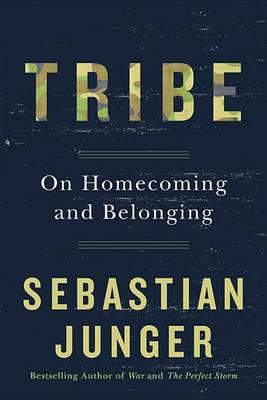This summary of Tribe: On Homecoming and Belonging is one of my earlier summaries. It’s not as detailed as my later summaries, but hopefully useful anyway.
Buy Tribe at: Amazon | Kobo (affiliate links)
Key Takeaways from Tribe
1. Humans are tribal creatures
Historically, humans have lived in groups. Those groups have been mostly egalitarian with limited hierarchy, disparities of wealth, etc. We have evolved to help others in our tribes and generally act for the good of the tribe (to the point of being willing to die for the tribe).
He talks a lot about war and how veterans miss parts of the war – the camaraderie, living in close proximity to others, having a purpose – and struggling to reintegrate into society after the war. He refers to Emile Durkheim, who found that suicide rates dropped when European countries went to war.
A Lyons found that depression rates varied across districts, with districts suffering less violence experiencing higher rates of depression. He hypothesised that men in peaceful areas were depressed because they couldn’t help by actively participating in the struggle.
2. Much of modern life makes us less social/tribal and therefore less happy
In modern society, with our increased wealth, we have changed to living further apart. It eliminates many situations that require people to band together to survive. For example, sleeping in separate rooms – sometimes from birth. Junger notes that in the past, making a baby sleep alone might be considered child abuse. He suggests that this has caused us to feel more depressed and anxious than ever.
One example is comparing depression rates in different areas. Junger refers to a 2006 study comparing depression rates in Nigeria to depression rates in North America. The study found that, across the board, women in rural areas were less likely to get depressed than women in urban areas. [I do think that lower rates of depression in rural areas might be explained (at least in part) by under-diagnosis in those areas.]
3. Outside threats, such as terrorist attacks, wars, and natural disasters, tend to strengthen social bonds
Rather than destroying a community, outside threats such as terrorist attacks tended to galvanise a community and strengthen social bonds in that community. For example, after the 9/11 terrorist attacks, violent crime, suicide and psychiatric disturbances dropped in New York immediately.
Communities devastated by a natural disaster hardly ever lapse into chaos and disorder. Instead, a “natural” order emerges and they become more egalitarian. Class, wealth and income disparities become irrelevant (at least for a while) as individuals are judged by what they can do for the group.
My thoughts
I came across this book because it was featured in an EconTalk episode. Overall, I think I preferred the podcast episode. It covered off the key points in a little over an hour.
Based on my own experiences, I found Junger’s central message was quite persuasive. But I didn’t particularly like the structure or Junger’s writing style. For a relatively short book, it seemed very repetitive. It also got a bit political and moralising at times. One example was when he talked about how bankers weren’t held sufficiently held to account during the GFC. Even though that may well be a valid claim, it didn’t give adequate consideration of the multiple causes of the GFC and just felt like pandering to certain parts of his audience.
Many examples (e.g. war, miners, bar fight, tribal dances) were very male-focused, and Junger obviously writes from a male perspective. A discussion of tribes with the female perspective in mind would have been interesting too. I think the central message probably applies equally.
Buy Tribe at: Amazon | Kobo (affiliate links)
If you enjoyed this summary of Tribe, you may also like:
